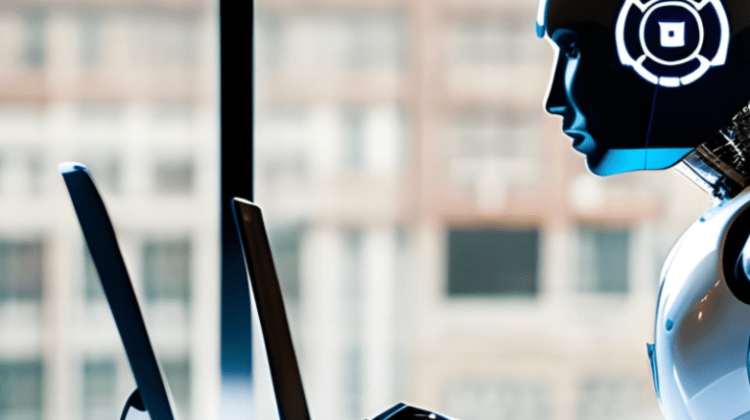
Will A.I. replace my job beyond 2024?
It will not fully replace, but it is complicated
In recent years, the rise of artificial intelligence (AI) has sparked both excitement and trepidation. While AI promises to revolutionize industries, streamline processes, and enhance our daily lives, it also raises concerns about job displacement. The question on many minds is whether AI will replace most jobs beyond 2024. In this blog post, we will explore the current state of AI, its potential impact on the job market, and the factors that will shape the future of work in a world increasingly driven by intelligent machines.
The Current State of A.I.
Before we delve into the future, let’s take a moment to understand where AI stands today. AI has made significant strides in various fields, including natural language processing, computer vision, and machine learning. Companies have adopted AI-driven technologies to automate routine tasks, analyze vast datasets, and even make predictions.
Chatbots, for example, now handle customer inquiries, virtual assistants like Siri and Alexa help us with tasks, and recommendation algorithms power the personalized content we see online. In industries like healthcare and finance, AI is assisting with diagnostics, predicting market trends, and automating administrative tasks.
However, it’s essential to note that AI’s capabilities are still far from human-level intelligence or the ability to perform complex, creative tasks without human guidance. AI systems excel at specific, well-defined tasks but struggle with tasks requiring emotional intelligence, creativity, and empathy.
The Impact on Jobs So Far
AI’s adoption has already led to changes in the job market. Certain tasks that were once performed by humans are now automated, resulting in job displacement in some sectors. For example, manufacturing has seen a significant shift toward automation, with robots taking over repetitive and dangerous tasks on factory floors.
In customer service, chatbots and virtual assistants have reduced the need for human operators to handle routine inquiries. In finance, algorithmic trading has become the norm, decreasing the demand for human stock traders. Despite these changes, it’s important to recognize that AI has also created new job opportunities in fields like data science, machine learning, and AI research.
The Future of Work
As we look beyond 2024, several key factors will influence how AI impacts the job market:
- AI as a Collaborative Tool: Rather than replacing human workers, AI is more likely to serve as a collaborative tool. It can augment human capabilities, automate repetitive tasks, and provide valuable insights. In fields like healthcare, AI can help doctors make more accurate diagnoses, but human judgment and empathy remain irreplaceable.
- Job Transformation: Many jobs will evolve as AI takes on routine and data-driven tasks. This transformation will require workers to develop new skills and adapt to changing roles. Lifelong learning and upskilling will become essential for staying competitive in the job market.
- Emerging Industries: AI will drive the growth of new industries and job opportunities. The development, deployment, and maintenance of AI systems will create demand for AI specialists, data scientists, and AI ethicists. Industries like autonomous vehicles, AI-driven healthcare, and quantum computing are poised for expansion.
- Human-Centric Roles: Jobs that require uniquely human qualities, such as creativity, emotional intelligence, and ethical decision-making, will remain in demand. These roles include artists, therapists, educators, and social workers.
- Ethical and Regulatory Considerations: The responsible development and deployment of AI will require robust ethical and regulatory frameworks. Governments and organizations will need to address concerns related to bias, privacy, and job displacement.
- AI in the Gig Economy: AI platforms may facilitate the growth of the gig economy, enabling workers to take on short-term projects that leverage their skills. This flexibility could provide opportunities for individuals to adapt to changing job landscapes.
Conclusion about A.I.
While AI has already started to reshape the job market, the widespread replacement of most jobs by AI beyond 2024 is unlikely. Instead, we should anticipate a future where AI works alongside humans, augmenting our abilities and automating routine tasks. This shift will necessitate continuous learning and adaptation on the part of the workforce.
The future of work will be characterized by a blend of human-centric roles, new opportunities in emerging industries, and the responsible use of AI technologies. Ethical considerations and regulatory frameworks will play a crucial role in ensuring that AI benefits society without causing widespread job displacement.
As we embrace the potential of AI, it’s important to remember that technology should serve humanity’s interests. By harnessing the power of AI responsibly, we can create a future where humans and intelligent machines coexist and collaborate to drive progress and innovation.








